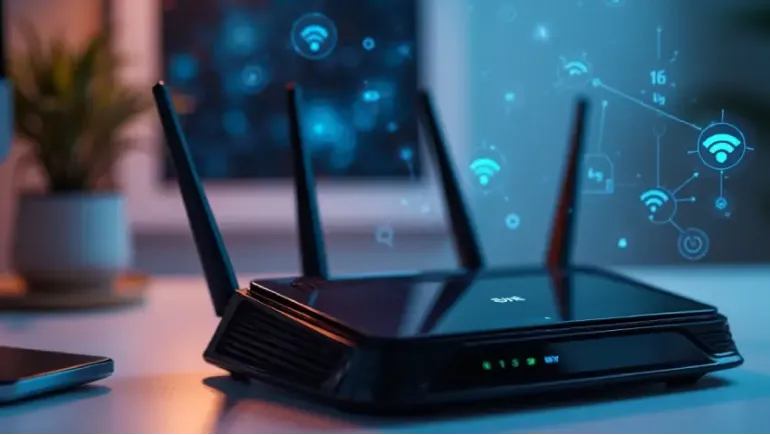
A Wi-Fi router is an essential device for using broadband internet at home or office. Various models of single, dual, or tri-band routers are now available in the country's market. But soon all single-band routers are going to be banned; only dual-band or tri-band will be allowed.
Bangladesh Telecommunication Regulatory Commission (BTRC) has informed about this decision in a circular. The new decision will be effective from April 1, 2025.
According to the notification, from next year, only routers supporting dual-band or tri-band can be imported from abroad and made in the country. All wifi routers marketed in Bangladesh must support 2.4-2.483 GHz and 5.725-5.875 GHz bands. WiFi routers that support either of these bands cannot be marketed. In a groundbreaking move to enhance internet connectivity across the nation, Bangladesh has recently banned the import, sale, and use of single-band routers. This decision marks a significant step towards modernizing the country’s digital infrastructure and ensuring reliable, high-speed internet access for all.
Single-band routers, which operate solely on the 2.4 GHz frequency, have been a staple in households and offices for years. However, this frequency is increasingly prone to congestion and interference, especially in densely populated areas where multiple devices compete for bandwidth. The limitations of single-band routers often result in slower internet speeds and reduced performance, hindering the growth of Bangladesh's digital ecosystem.
With the ban in place, the government is encouraging the adoption of dual-band and Wi-Fi 6 routers. These devices operate on both the 2.4 GHz and 5 GHz frequencies, offering faster speeds, reduced interference, and greater stability. Wi-Fi 6 technology, in particular, is designed to handle multiple high-bandwidth activities simultaneously, making it ideal for modern households and businesses.
The transition is expected to:While the ban may initially seem inconvenient to some users, it is a long-term investment in the country’s digital future. Consumers will benefit from improved performance and enhanced online experiences. Meanwhile, businesses in the tech and e-commerce sectors are expected to see increased demand for compliant routers, creating growth opportunities.
This policy aligns with the government’s vision of a “Digital Bangladesh,” fostering a tech-savvy society and bridging the digital divide. It also positions the country to meet global standards in internet connectivity, essential for attracting international investments and boosting economic growth.
This will stop the import of low-quality and low-band routers from abroad and production in the country. Such steps are being taken to improve internet quality and ensure high-speed data transfer facilities.












Comments
There are no comments for this Article.